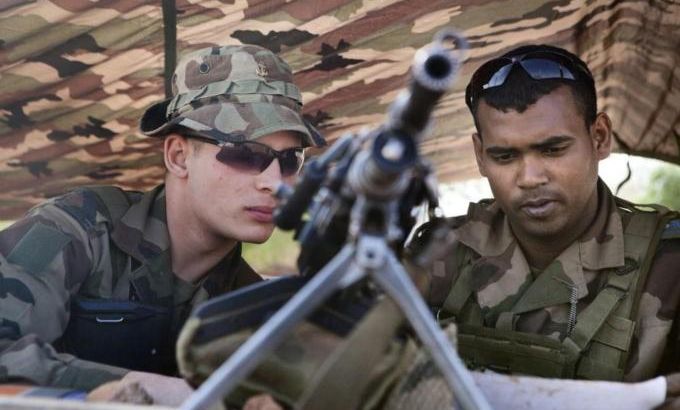French forces in Mali capture Gao
French and Malian troops arrive in key northern city as they make inroads to last remaining rebel strongholds.

French and Malian forces have taken control of the rebel stronghold of Gao, marking a major advance in their bid to oust al-Qaeda-linked fighters who have controlled northern Mali for months.
The capture of the town comes two weeks after France launched its military offensive in support of the shaky central government of the former French colony. It is unclear what kind of resistance French and Malian troops will face in the coming days, though French officials were already praising recent battlefield successes.
Swooping in by land and by air and under the cover of darkness, French and Malian forces came under fire on Saturday morning and continued to face sporadic “acts of harassment” through the day, Colonel Thierry Burkhard, a French military spokesman in Paris, said. He had no immediate estimate on casualties.
The French defence ministry issued a statement saying the whole town of Gao had been liberated, and government control was already being established – notably with the return on Saturday of the town’s mayor, Sadou Diallo, who had fled to Mali’s capital Bamako far to the west.
French Defence Minister Jean-Yves Le Drian said in a statement on Saturday that French-led forces had captured the key bridge and airport in Gao, and fighters whom they encountered “saw their means of transport and their logistics sites destroyed”.
The rebels first seized control of Gao and two other northern provincial capitals – Timbuktu and Kidal – in April last year during the chaotic aftermath of a coup in the distant capital.
Before the joint air-land operations, French forces carried out “an important phase of air strikes” around Gao and Timbuktu, with nearly 30 bombs fired from fighter jets over the previous two days, France’s military said in yet another statement.
More French and African troops and equipment were being sent to Gao, the military said. Troops from Chad and Niger “should arrive in the Gao area very soon,” it added.
Fighter jets
Elsewhere in Mali, French and Malian troops supported by a tactical air group carried out a night-time “reconnaissance offensive” toward Lere, “where several terrorist elements were noticed a few days earlier,” the military said.
Two Rafale jets have been added to the campaign, bringing France’s total deployment to 12 fighter jets as part of the code-named Operation Serval in Mali, the military said.
Nouhoum Maiga, a deputy mayor in Gao, confirmed Saturday that the French had come by land and air late Friday.
Gao has been under the control of the al-Qaeda-linked Movement for Oneness and Jihad, or MUJAO, for months.
On Friday in a show of might, the rebels destroyed a bridge near the Niger border with explosives, showing that the extremists still remain a nimble and daunting enemy.
Since France began its military operation Jan 11 with a barrage of airstrikes followed by a land assault, the rebels have retreated from three cities in central Mali: Diabaly, Konna and Douentza.
The rebels, though, had maintained control of the majority of the territory in Mali’s north, most importantly the cities of Gao, Kidal and Timbuktu.
The announcement that Gao’s airport had been taken marked the first official confirmation that French and Malian forces had reached the city.
Previously the closest they had been was Hombori, a town some 250km away.
The French currently have about 2,500 forces in the country and have said that they will stay as long as needed in Mali, a former French colony.
However, they have called for African nations to take the lead in fortifying the Malian army’s efforts.
There are currently some 1,750 troops from neighbouring African countries, including Togo, Nigeria, Burkina Faso, Benin, Senegal, Niger and Chad. The US announced on Saturday that it would be increasing logistical support to French efforts by agreeing to refuel French warplanes being used in Mali.
On Saturday, the Malian military allowed international journalists to enter the town for the first time since the conflict began.